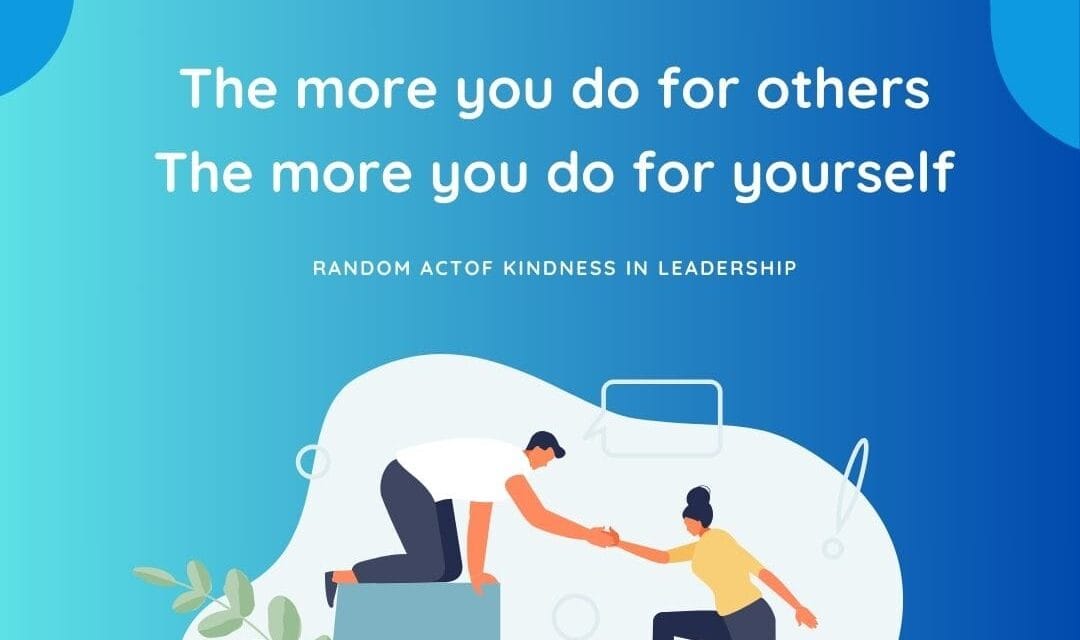In today’s rapidly changing world, the concept of leadership has evolved, and the “new normal” has brought a fresh perspective on what it means to be an effective leader. One of the most crucial elements of leadership in this new era is kindness. Kindness in leadership can foster a positive work environment, improve team morale, and drive productivity. In this article, we will explore the importance of kindness in leadership and share practical tips on how you can practise it in your everyday life as a leader.
Why Kindness Matters
- Creates a Positive Work Environment
Kindness is contagious. When leaders demonstrate kindness, they set the tone for the entire workplace. A positive work environment encourages collaboration, trust, and employee satisfaction. Team members are more likely to thrive and innovate when they feel supported and valued.
- Boosts Employee Morale
Leaders who show kindness make their team members feel appreciated and respected. This boosts employee morale and leads to increased job satisfaction. When employees are happy and motivated, they are more likely to go the extra mile, leading to higher productivity and better results.
- Enhances Team Collaboration
Kindness fosters a culture of trust and cooperation within a team. When leaders are kind, team members are more likely to work well together, share ideas, and communicate openly. This results in better problem-solving and innovation, leading to improved team performance.
Practical Tips for Leading with Kindness
- Active Listening
Practise active listening by giving your full attention to your team members when they speak. Show empathy and understanding by asking open-ended questions and seeking to understand their perspective. This helps create a sense of trust and shows that you value their input.
- Express Gratitude
Regularly express your gratitude for your team’s efforts and contributions. Simple acts like saying “thank you” and acknowledging their hard work can go a long way in making team members feel appreciated.
- Provide Constructive Feedback
When offering feedback, be constructive and empathetic. Focus on the issue at hand rather than criticising the person. Encourage growth and improvement by providing guidance and support.
- Empower and Trust Your Team
Empower your team by delegating responsibilities and trusting them to handle tasks. Micromanagement can erode trust and stifle creativity. Give your team members the freedom to make decisions and learn from their experiences.
- Lead by Example
Demonstrate the kindness you expect from your team. Be a role model by treating others with respect, showing patience, and being supportive in your interactions. Your actions will set the standard for the workplace culture.
- Foster Work-Life Balance
Recognize the importance of work-life balance and encourage your team to prioritise their well-being. Provide flexibility when possible and support their personal needs, which can lead to increased loyalty and commitment.
- Be Adaptable
In the ever-changing landscape of the new normal, be adaptable and open to new ideas. Kindness includes being open to change and valuing the diverse perspectives and talents of your team members.
Kindness is not a sign of weakness in leadership; rather, it is a source of strength and resilience. Leading with kindness in the new normal can result in a positive work environment, improved morale, and better collaboration within your team. By practising active listening, expressing gratitude, providing constructive feedback, empowering your team, leading by example, fostering work-life balance, and being adaptable, you can become a more effective and compassionate leader. Embracing kindness in leadership is not only beneficial for your team but also for your personal and professional growth in this ever-evolving world. So, let kindness be your guiding principle in the new normal of leadership, and watch your team flourish.




